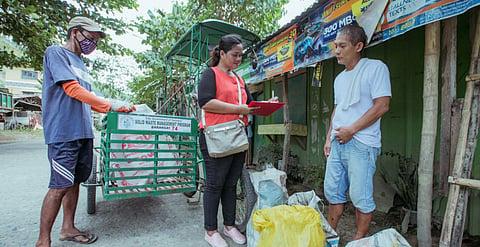

Governments across the world can transition to a zero-waste future as well as alleviate urban poverty by forging partnerships with informal recyclers using dedicated economic recovery funds.
This was among the findings of the recent report by the Global Alliance for Incinerator Alternatives (GAIA), released on Internation Waste Pickers Day celebrated on March 1.
The informal recycling marker was severely impacted during the lockdown imposed to curb the spread of the novel coronavirus disease (COVID-19), with several waste pickers not allowed to work in the market.
In such a scenario, the report noted, the local governments need to recognise the essential role informal recyclers play and partner with them. This would help waste pickers to create local jobs and provide better recycling and composting services
The report based its research from countries in the global south such as South Africa, Brazil, India and China.
It analysed the extent of the role informal recyclers play in the recycling industry. In South Africa, for example, waste pickers recovered between 80 to 90 per cent of the post-consumption packaging and paper, according to the report.
Recycling rates achieved by the informal sector ranged from 20-50 per cent in China, Pakistan, India, and the Philippines.
In Brazil, the National Waste Pickers Movement (MNCR) was responsible for collecting 90 per cent of all material recycled in the country.
In India, waste pickers recycle 54 per cent of all recycled glass, 34-45 per cent of all recycled plastic, and 28-50 per cent of all recycled cardboard and mixed paper, the report noted.
According to the report:
Based on data from several cities that contract with waste pickers, the average number of jobs created by inclusive waste management systems is 321 jobs per 10,000 tonnes per year of recyclables.
The report said the “opportunities represented by economic recovery funds and other funds for waste and climate initiatives should be used to upgrade the working conditions of those already doing this essential work and not as a way to save money by only maintaining a service done by recyclers under very poor conditions”.
It added that waste picker groups in different regions have acquired an extensive know-how that could help pave the way for governments who want to implement zero waste systems.
In Pune, India, for example, the SWaCH cooperative provides source segregated door-to-door waste collection service to over 840,000 households, collecting almost 400,000 tonnes of waste per year through a contract with Pune Municipal Corporation, and employing 3,500 waste pickers.